
Question: Can't remember which episode, but when Celeste is put back into her body, she has a French accent and speaks French, but in previous episodes in the flashbacks she had a normal accent. Am I missing something?
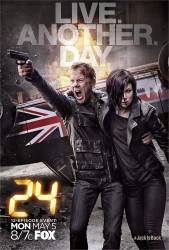
10:00 p.m.-11:00 p.m. - S1-E12
Question: The episode is titled 10:00pm-11:00am, Kiefer Sutherland also says it in the intro. Is this an error?
Answer: No, it's right. The miniseries wasn't a complete renewal of the original series, but instead was promoted as a 'limited-run' series. Since it only covered twelve hours instead of twenty-four, the final episode skips over the eleven hours after 11:00 pm and picks up in the last few minutes between 10:00 am and 11:00 am.
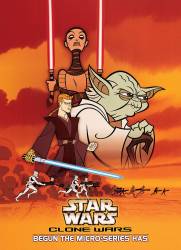
Question: How old is Asajj Ventress?
Answer: Her date of birth is unrevealed. What little is known is that she was found as a child (precise age unknown) by a Jedi who crashlanded on her homeworld of Rattatak somewhere around 40BBY (precise year unknown). Realising her Force potential, he took her as his Padawan and trained her for some years, only to be cut down by a local warlord before he could finish, leaving her to seek vengeance on the warlords who had conspired against him, precipitating her fall to the Dark Side. It's difficult to determine her precise age from all this, but if we assume that she was ten when she was found, and that was in 40BBY, then Asajj would be 28 at the outbreak of the Clone Wars. So figure on anywhere in a range a few years either side of that.

Question: How can Lizzie's father have died in the fire when in an earlier season, Red killed him in the hospital when Lizzie was already an adult?
Answer: The man Red killed, Sam Scott, was Lizzie's adoptive father, not her biological one. However, at that time Lizzie (and thus the audience), was led to believe her real father abandoned her and her mother, so expect more secrets to be revealed how her real father actually died (or if he's even actually dead).
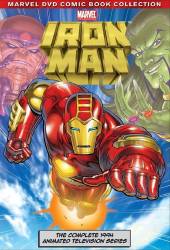
Question: Why was the first season of this cartoon received so negatively?
Answer: Gleaned from the Internet: Some critics criticized the premise of so many one-off battles that were introduced and concluded within one or two episodes. Others felt the first-season plot lines were overly simplistic and never progressed or developed through the season. Also, the rivalry between Iron Man and the Mandarin also failed to capture viewer's attention.
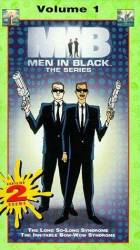
Question: Is this show in continuity with the 3 movies, or does it stand alone?
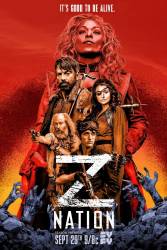
Question: In this episode, several teams of human "harvesters" wander through a greenhouse filled with vegetable-hybrid zombies, searching for specific seed pods that might cure the zombie virus. None of the harvesters survive very long inside the greenhouse, even though the translucent plastic/fiberglass greenhouse walls are never more than a few steps away. In fact, the prized "Batch 47" is discovered just feet away from the translucent wall. Why couldn't the harvesters escape from the zombies by simply charging straight through the flimsy greenhouse walls? Or, even better, why didn't they just tear out the flimsy walls from the outside and search for Batch 47 from around the perimeter? I mean, it's just a greenhouse, not Fort Knox.
Answer: When the plant zombies would attack they would wrap people with the vines and hold them, so they couldn't escape.
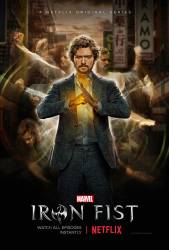
Question: How come Davos has two iron fists? The power transfer shouldn't have doubled it.
Answer: In the comics Iron Fist is able to use the power on both hands. There is no reason why Danny shouldn't be able to. Presumably he chooses to only use the one fist at a time, focusing all his power into one hand rather than distributing it between 2.
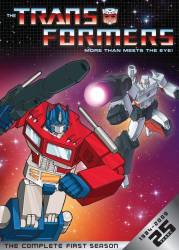
Question: What is the true origin of the Constructicons? "Heavy Metal War" claims they were built on Earth by Megatron, but "The Secret of Omega Supreme" shows them already on Cybertron before the war on Earth began. Is this a legitimate mistake or is there a reason behind it?
Answer: This was actually one of many errors in Transformers, the Constructicons MUST have been built on Cybertron, the only transformers genuinely built on earth were the dinobots, reason being Vector Sigma has to give personalities to each and every robot, else they end up like the dinobots, very simple and dumb. For reference watch the episode "The Key to Vector Sigma" which introduces the Stunticons and Arielbots - both Megatron and Optimus Prime have to go to Vector Sigma to get decent personality traits installed, prior to this the new robots are controlled by remote controllers and have no AI.
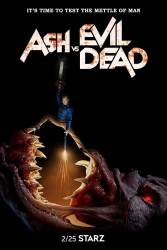
Question: Question about the franchise in general: would crowd funding be a viable method to finance new installments?
Answer: Series creator Sam Raimi has said that there are three new ideas to continue the franchise, but there's no other information available at this time. Crowd funding could possibly fund another film, sure. But it's such a well-known franchise that it likely wouldn't be necessary. All we really know for sure is that the series "Ash VS Evil Dead" can't return, as it is under partial ownership by Starz, and producer Robert Tapert stated in a Q&A that they weren't interested in selling off the rights to the series. So if more "Evil Dead" is made, it likely wouldn't be a direct continuation of the series.
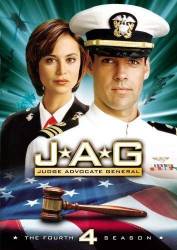
Question: In the episodes where Harm flies F-14s, what does it mean when pilots are told to "call the ball"?
Chosen answer: When landing on an aircraft carrier, a pilot "calls the ball" by confirming to the landing signal officer (LSO) that they have the carrier, and more specifically its landing guidance systems in sight. Carriers use a Fresnel lens system which is a light only visible at a certain angle, so if a pilot sees the "ball" they are at the correct altitude and glide slope for landing.
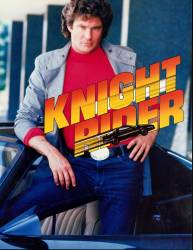
No Big Thing - S1-E8
Question: In this episode, in an aerial view of KITT travelling before meeting the semi, KITT is passing a parked car that seems to be one of the other cars used as the stand-in for the 'hero car'. Would that be any sort of error? (00:23:35)
Answer: I would say that unless there's visual evidence it was another K.I.T.T. car, as in you could see the bar scanner or cut steering wheel, people on here would correct the mistake by saying more than one 1982 Pontiac Firebird Trans-Am was sold and there's no reason it's meant to be a random car.
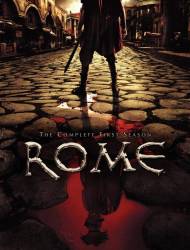
Question: I don't understand why Pullo is so angry with Vorenus and thinks he needs to apologise. Having fought in Caesar's army for as long as Pullo has he would be very well aware of the repercussions for what he did, why would he blame Vorenus for abiding the law and doing what is required of him as a centurion?
Answer: Its Pullo's nature to resent people of higher standing than him. His jealousy of Vorenus in later episodes, which in part leads to their falling out, is proof of that. From Pullo's point of view, Vorenus just got better breaks to get where he is in the army and so, isn't really his superior. That, plus his natural arrogance is explantion enough for his behaviour in spite of the fact that he broke the rules and was being fairly punished.

Question: Why does Bucky rip his jacket sleeve off before jumping out of the plane? Just for the sake of an audience reveal to demonstrate his artificial arm?
Chosen answer: The sleeve probably would have been ripped to shreds in battle anyway. He was just saving time by ripping it himself. Also, gunfighters would take off their coats in a duel or an arm wrestler rolling up his sleeve.
Answer: Aside from visual aesthetics and it being nice to see the metal arm. In world/practically I think (and I believe this is the reason why he tends to not have a left sleeve in most action we've seen him in prior films) it's also to assist with mobility during fights. The metal arm likely behaves a little differently than a human/bone and flesh arm does - and restricting that in a sleeve during a fight (especially in a thicker jacket sleeve) might mess with his reflexes. So removing the sleeve probably assists with the mobility of that arm.

Hit and Run - S2-E5
Question: Towards the end of this episode the squad car has to double park so Regan can use a phone box, as Regan gets out of the car a van has to drive round the squad car and the driver sounds the horn, Regan gesticulates and shouts "up yours" at the van driver. I wonder if this was scripted or was a random moment and John Thaw was ad-libbing?
Answer: Scripted.
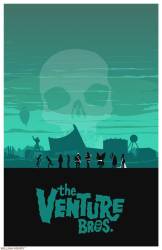
Question: In the first episode of the second series, there is a mix of "Everybody's Free" by Rozalla. I have 4 mixes of this track, and it's not one of those. What is the name of this mix? Was it made especially for the show?
Chosen answer: It is a remix by Aquagen. http://en.wikipedia.org/wiki/Aquagen http://venturebrosrave.ytmnd.com/ Go Team Venture!

Question: Is there any explanation to how Agent Coulson is alive even after Loki killed him in The Avengers?
Chosen answer: Coulson believes he was resuscitated then sent to Tahiti to recuperate. "A magical place," he calls it. But in the "Agents of S.H.I.E.L.D." episode "The Magical Place", Coulson, through a mind-reading machine, learns that he was treated by S.H.I.E.L.D. and a fake memory of Tahiti was placed as a "mask" of sorts over the painful memory of the operation, which involved a drug seemingly of alien origin to repair the damage, coupled with a lot of morally dubious surgery.
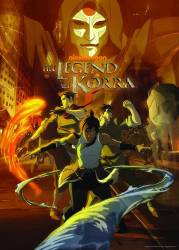
Question: What happened to the lieutenant after Amon threw him into the pile of wood?
Answer: We do not see what happens. Avatar shows rarely have people killed on screen, so either he got away and was never seen again, or just died right there. As Amon was outed as a bender, he would not go back for his old boss.
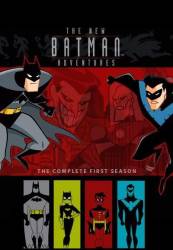
Question: Given his origin, was Tim Drake really Jason Todd, just given the third Robin's name?
Answer: Tim Drake's origin in the DC Animated Universe differs significantly from his origin in the comics, but it also differs greatly from Jason Todd's. This version of the character is unique to this universe, similar to many of the other supporting characters with origin stories that range from being nearly identical to the comics to being entirely different from the comics.
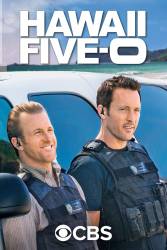
Answer: She was in a different body.